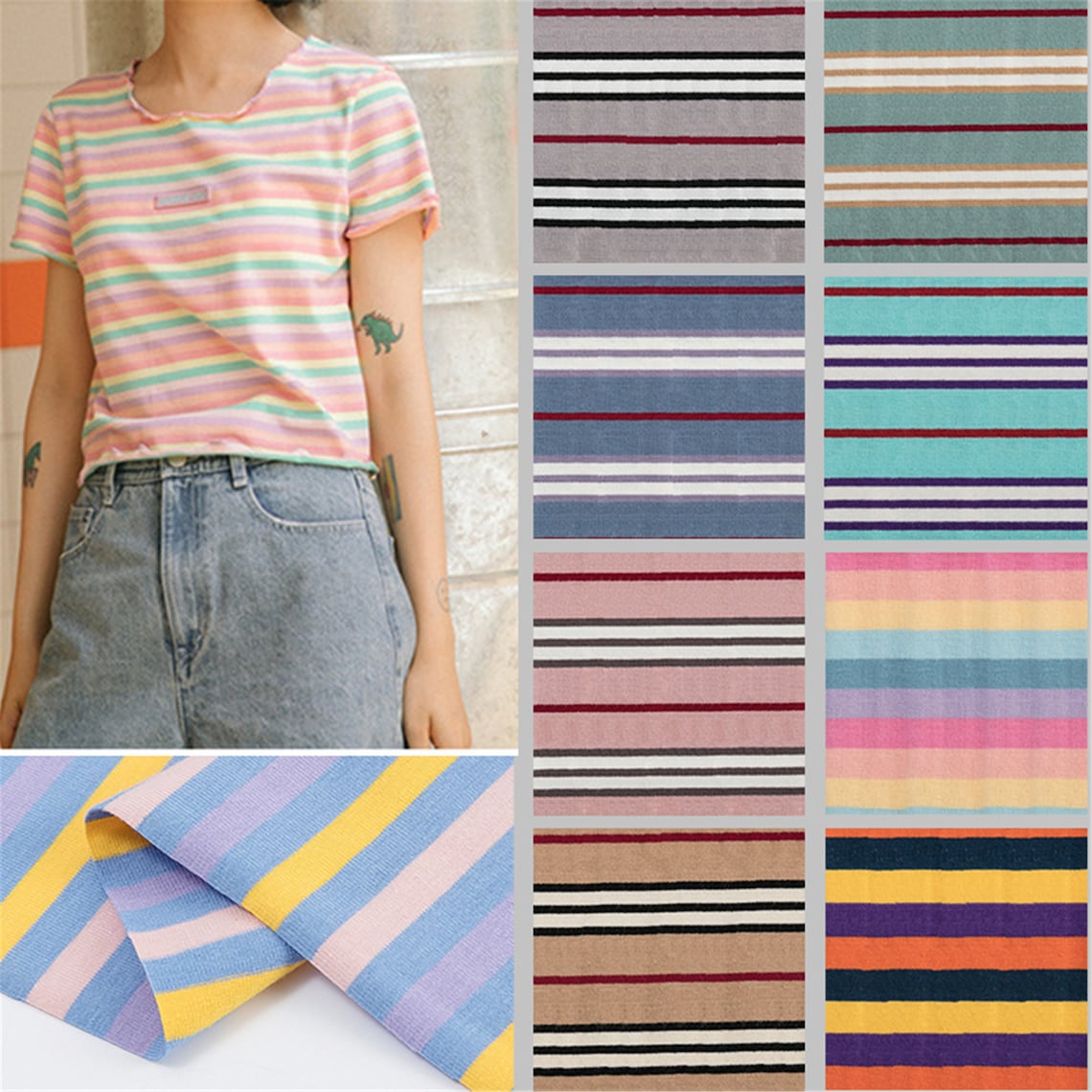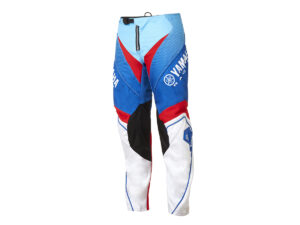When it comes to choosing the perfect shirt, the material plays a crucial role. It affects not only the comfort and durability but also the overall appearance and style. One material that has gained immense popularity in recent years is jersey. Jersey fabric is known for its softness, stretchability, and breathability, making it an ideal choice for various types of shirts. Whether you are a fashion enthusiast or simply looking for a comfortable everyday shirt, understanding the properties and benefits of shirts made from jersey material is essential. In this comprehensive guide, we will delve into the world of jersey, exploring its origins, characteristics, types, and how it compares to other materials. So, let’s dive in and discover why jersey fabric has become a favorite among shirt enthusiasts worldwide.
What is Jersey Fabric?
Jersey fabric is a type of knitted fabric that is known for its unique characteristics and versatility. It is made from a blend of natural or synthetic fibers, resulting in a soft, stretchy, and breathable material. The name “jersey” originated from the Channel Island of Jersey, where this fabric was first produced. Initially, jersey fabric was made from wool, but today, it is commonly manufactured using cotton, polyester, or a blend of both.
The Characteristics of Jersey Fabric
Jersey fabric is known for its distinct characteristics that set it apart from other materials. Here are some key features of jersey fabric:
- Softness: One of the most appealing qualities of jersey fabric is its soft and smooth texture. The fibers used in jersey fabric are carefully knitted together, resulting in a fabric that feels gentle against the skin.
- Stretchability: Jersey fabric has excellent stretchability, which allows it to conform to the body’s shape comfortably. This stretchiness makes jersey shirts perfect for active individuals or those who prefer a more relaxed fit.
- Breathability: Jersey fabric is highly breathable, allowing air to circulate through the fabric easily. This makes it an excellent choice for warm weather or intense physical activities, as it helps to keep the body cool and dry.
- Lightweight: Another advantage of jersey fabric is its lightweight nature. It feels light and airy on the body, providing a comfortable wearing experience.
- Durability: Despite its soft and delicate feel, jersey fabric is surprisingly durable. It can withstand regular wear and tear, making it a long-lasting choice for shirts.
Types of Jersey Fabric
There are several types of jersey fabric, each with its unique characteristics and uses. Let’s explore some of the most common types:
1. Cotton Jersey
Cotton jersey is perhaps the most popular type of jersey fabric. It is made from 100% cotton fibers, which contribute to its softness and breathability. Cotton jersey is highly versatile and can be used to make a wide range of shirts, including t-shirts, polo shirts, and casual tops. It is also easy to care for and can withstand frequent washing without losing its shape or color.
2. Polyester Jersey
Polyester jersey is made from synthetic fibers, specifically polyester. This type of jersey fabric is known for its durability, wrinkle resistance, and moisture-wicking properties. Polyester jersey shirts are often used in sports and athletic wear, as they can effectively wick away sweat and keep the body dry during intense physical activities.
3. Blended Jersey
Blended jersey fabric is a combination of cotton and polyester fibers. This blend combines the best qualities of both materials, resulting in a fabric that is soft, breathable, and durable. Blended jersey shirts are popular for their versatility and are suitable for both casual and athletic wear.
Advantages of Shirts Made from Jersey Fabric
Shirts made from jersey fabric offer several advantages that make them a popular choice among individuals of all ages. Here are some of the key advantages:
- Comfort: Jersey fabric’s softness and stretchability ensure maximum comfort, allowing the shirt to move with your body.
- Style: Jersey shirts come in a variety of styles, from basic t-shirts to trendy designs. The fabric’s drape and stretchability give it a flattering and stylish appearance.
- Breathability: The breathability of jersey fabric keeps you cool and prevents excessive sweating, making it suitable for various climates and physical activities.
- Durability: Jersey fabric is known for its durability, allowing shirts made from this material to withstand regular wear and washing without losing their shape or color.
- Versatility: Jersey shirts can be dressed up or down depending on the occasion. They can be paired with jeans for a casual look or worn with skirts or slacks for a more formal outfit.
How Does Jersey Fabric Compare to Other Materials?
While jersey fabric offers unique advantages, it is important to understand how it compares to other popular shirt materials. Let’s compare jersey fabric to two commonly used materials: cotton and polyester.
1. Cotton vs. Jersey Fabric
Cotton is a natural fiber known for its softness, breathability, and comfort. It is a popular choice for shirts, especially in hot weather. When comparing cotton to jersey fabric, the main difference lies in the knitting technique. Jersey fabric has a knitted construction, which gives it stretchability and a more form-fitting appearance compared to traditional cotton shirts. While cotton shirts are still comfortable, jersey fabric offers added stretch and a sleeker look.
2. Polyester vs. Jersey Fabric
Polyester is a synthetic fiber known for its durability, moisture-wicking properties, and quick-drying capabilities. It is commonly used in sportswear and athletic shirts. When comparing polyester to jersey fabric, the main difference is in the feel and breathability. Polyester has a smoother texture and is less breathable compared to jersey fabric. However, polyester offers superior moisture-wicking properties, making it more suitable for intense physical activities.
How to Care for Shirts Made from Jersey Fabric
Caring for shirts made from jersey fabric is relatively simple. By following a few basic guidelines, you can ensure that your jersey shirts remain in top condition for a long time:
- Washing: Wash jersey shirts in cold water on a gentle cycle to prevent shrinkage. Avoid using harsh detergents or bleach, as they can damage the fabric. If possible, wash jersey shirts separately or with similar colors to prevent color bleeding.
- Drying: Air drying is the best option for jersey shirts to maintain their shape and prevent shrinkage. If using a dryer, choose a low heat setting and remove the shirt from the dryer while it is still slightly damp to minimize wrinkles.
- Ironing: Jersey shirts are prone to wrinkles, but excessive heat can damage the fabric. Use a low heat setting on your iron or opt for steaming to remove wrinkles gently.
- Storage: Fold jersey shirts neatly and store them in a cool, dry place to prevent moisture and mildew. Avoid hanging them for extended periods, as this can stretch the fabric.
Conclusion
Jersey fabric is a versatile and popular choice for shirts, thanks to its softness, stretchability, breathability, and durability. Whether you are looking for a comfortable everyday shirt or a stylish option for a special occasion, shirts made from jersey fabric offer numerous advantages. With its origins dating back to the Channel Island of Jersey, this knitted fabric has evolved to become a staple in the fashion industry. By understanding the characteristics, types, and care instructions of jersey fabric, you can make informed choices when it comes to purchasing and maintaining your jersey shirts. So, embrace the comfort and style of jersey fabric and elevate your wardrobe to new heights.
Frequently Asked Questions (FAQs)
1. Can I wear a jersey shirt for formal occasions?
While jersey shirts are more commonly associated with casual or sporty looks, they can be dressed up for formal occasions. Opt for a jersey shirt with a more tailored fit and pair it with a blazer or dress pants to achieve a sophisticated look.
2. Does jersey fabric shrink after washing?
Jersey fabric has a tendency to shrink if not washed properly. To prevent shrinkage, always wash jersey shirts in cold water and avoid using high heat during drying.
3. Can I wear a jersey shirt during exercise?
Yes, jersey shirts are suitable for exercise due to their breathability and stretchability. They allow for a comfortable range of motion and help wick away moisture from the body.
4. Are all jersey fabrics the same?
No, there are different types of jersey fabrics, such as cotton jersey, polyester jersey, and blended jersey. Each type has its unique characteristics and uses.
5. Can I iron a jersey shirt?
Yes, you can iron a jersey shirt,but it is important to use a low heat setting to avoid damaging the fabric. Alternatively, you can opt for steaming the shirt to remove wrinkles gently without direct contact with the iron.
Overall, jersey fabric offers a multitude of benefits that make it an excellent choice for shirts. Its softness, stretchability, breathability, and durability combine to create a comfortable and stylish garment. Whether you’re lounging at home, heading to the gym, or attending a casual outing, a jersey shirt is a versatile option that can elevate your look and provide optimal comfort.
So, next time you’re shopping for shirts, consider giving jersey fabric a try. With its wide range of styles, colors, and designs, you’re sure to find a jersey shirt that suits your taste and needs. Embrace the comfort and style of jersey fabric and enjoy the countless advantages it brings to your wardrobe.
Summary
Jersey fabric is a knitted fabric known for its softness, stretchability, breathability, and durability. It originated from the Channel Island of Jersey and has become a popular choice for shirts due to its unique characteristics. There are various types of jersey fabric, including cotton jersey, polyester jersey, and blended jersey, each with its own qualities and uses. Shirts made from jersey fabric offer advantages such as comfort, style, breathability, durability, and versatility. When comparing jersey fabric to other materials like cotton and polyester, it stands out for its stretchability, form-fitting appearance, and breathability. Caring for shirts made from jersey fabric involves washing them in cold water, air drying or using a low heat setting, gentle ironing, and proper storage. Overall, jersey fabric is a versatile and stylish option that can elevate your wardrobe and provide maximum comfort.
Frequently Asked Questions (FAQs)
1. Can I wear a jersey shirt for formal occasions?
While jersey shirts are more commonly associated with casual or sporty looks, they can be dressed up for formal occasions. Opt for a jersey shirt with a more tailored fit and pair it with a blazer or dress pants to achieve a sophisticated look.
2. Does jersey fabric shrink after washing?
Jersey fabric has a tendency to shrink if not washed properly. To prevent shrinkage, always wash jersey shirts in cold water and avoid using high heat during drying.
3. Can I wear a jersey shirt during exercise?
Yes, jersey shirts are suitable for exercise due to their breathability and stretchability. They allow for a comfortable range of motion and help wick away moisture from the body.
4. Are all jersey fabrics the same?
No, there are different types of jersey fabrics, such as cotton jersey, polyester jersey, and blended jersey. Each type has its unique characteristics and uses.
5. Can I iron a jersey shirt?
Yes, you can iron a jersey shirt, but it is important to use a low heat setting to avoid damaging the fabric. Alternatively, you can opt for steaming the shirt to remove wrinkles gently without direct contact with the iron.



